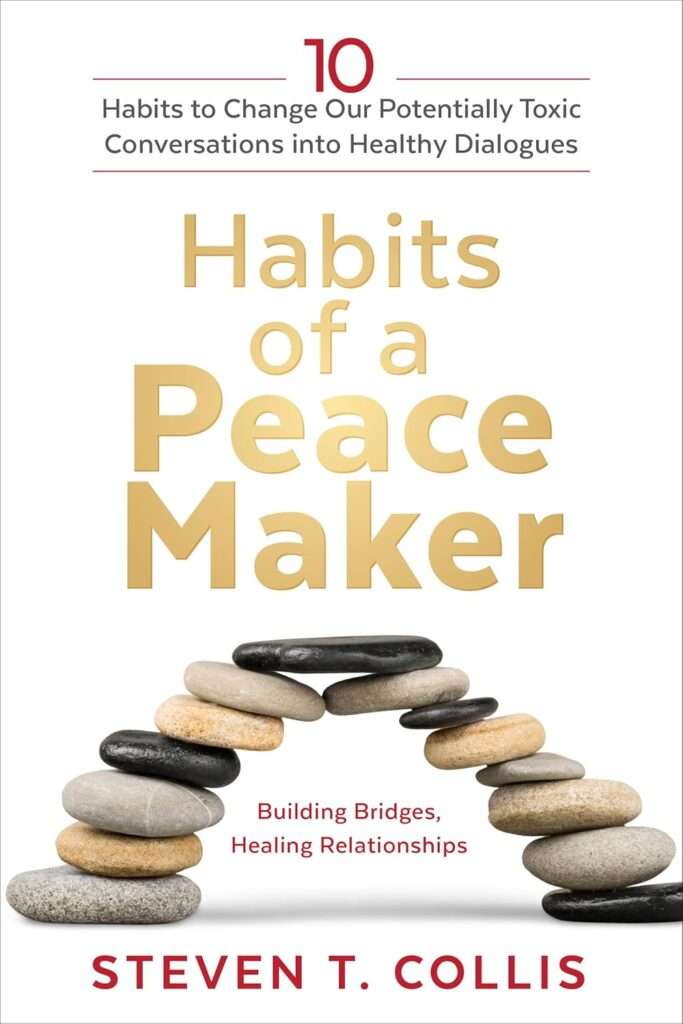
In my continuing series related to my new book Habits of a Peacemaker, this next post seems especially apropos since today is the anniversary of the September 11 attacks. Peacemakers—defined for my purposes as those among us who can have productive conversations about hard topics—generally assume the best about the people with whom they are conversing, regardless of their identities or even deeply held beliefs about controversial issues. Below is an excerpt from Habits Chapter 3, "Assume the Best About People":
Some time ago, I received an unusual email. It was from two high-level federal judges.… One had been appointed by President Barak Obama, the other by President Donald Trump. They informed me that once a month, they and a group of other … judges met together in their private capacities for a prayer breakfast. This was not a public event, not a spectacle where politicians and media showed up to try to garner favor with the voting public.
It was private. Most people never learn of it. The judges—of different faiths and very different political and judicial ideologies—met together throughout the year to enjoy breakfast and pray with one another, usually about people in their lives who were suffering. They were wondering if I would be willing to come and talk with them about one of my books [one not directly related to law].
I agreed. I … met them … early one morning. Outside, several news outlets were setting up cameras for a story about a case some of these jurists would hear later in the morning.
As soon as I entered the building, one of the judicial assistants lead me through security, down a narrow hall, and into a small conference room, where the judges eventually joined. To see them all sitting together, people who are often portrayed as being at one another's throats, was touching to me. Despite their very real differences, they recognized the good in one another and the parts of their identities they had in common, and they shared those over a bite to eat. Like everyone else in our world, they worried over their loved ones, they expressed concern over people they personally knew who were suffering, and they shared empathy with each other over their very human struggles.
I wish everyone could see people like this in that setting.
Their example provides a valuable lesson. This may come as a shock, but the world does not look like this:
- Those who agree with you
- Monsters
- Fools
Yet far too many of us have come to see reality this way. The social media silos mentioned earlier have contributed to that attitude. We are convinced that if someone does not come to the same conclusion as we have about a particular issue, then the only explanation must be that they have nefarious motivations or are ignorant. We are so self-assured of our own righteousness and vast knowledge on a particular topic that we have decided anyone who disagrees must be either a bigot, a buffoon, or worse. If we pause to get out of our own heads for just a moment, we will realize that such a view of the world can't possibly be true.
The people around us with whom we would like to have productive conversations are, we know, often good people. They are family members, coworkers, longtime friends. We know they strive to do right for their children and parents and siblings. We know they try to do a good job for their employers. But for some reason, on the most divisive topics, they transform in our minds to some sort of sinister actor we cannot trust. That type of thought distortion is nonsensical, but we all are guilty of it from time to time.
To be clear, I am not naive. The world does have bigots, despotic communists, fascists, criminals, power-hungry tyrants, and any other manner of evil actors; and fools do abound. But remember who we're talking about in this book: our family members, coworkers, and close associates—the type of people with whom we can have fruitful dialogues. The chances that any or all of them fall into one of those categories is slim, unless you are hanging around with a very different crowd than I am. The very fact that you are reading this book suggests to me that is highly unlikely.
That brings me to an important habit of peacemakers. They assume the best about people and their intentions. If they disagree with someone, they squelch the urge to assume the person has bad motives. They recognize it is possible that the person in question has less information than they do. All of us can do the same.
With our newfound intellectual humility, we now know that it is just as likely that the person in question has more or different information. They may also be aware of concerns that never crossed our mind given our limited perspective. If our goal is to be a peacemaker who can find solutions to the problems that trouble us most, then our purpose should be to learn and understand where other people are coming from and why. The remainder of this chapter offers practical tips for how to do just that. At worst, we'll discover arguments or information that challenge our views and that we need to take into consideration. At best, we'll come to understand the world better and will be even more equipped to tackle its problems.
The post On the Responsibilities That Come with the Freedom to Speak Freely appeared first on Reason.com.







